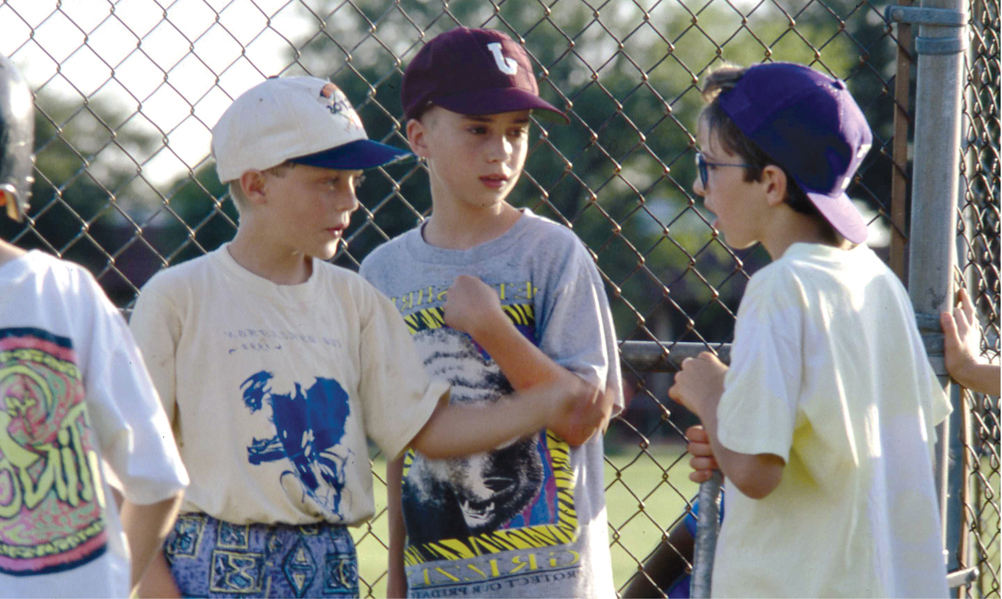What Is Special About Peer Relationships?
peers  people of approximately the same age and status
people of approximately the same age and status
Many theorists have argued that peer relationships provide special opportunities for children’s development. To begin with, peers are, by definition, individuals who are close in age to one another, closer usually than siblings. Thus, in contrast to their status in most of their other relationships, especially those with adults, children are relatively equal in terms of power when they interact with their peers (Furman & Buhrmester, 1985).
Piaget (1932/1965) suggested that because of this relative equality, children tend to be more open and spontaneous with peers when expressing their ideas and beliefs than they are with adults. As Piaget noted, children often accept adults’ beliefs and rules on the basis of mere obedience rather than on the basis of understanding or agreement (Youniss, 1980). With peers, on the other hand, children are more likely to openly criticize another’s ideas, clarify and elaborate their own ideas, and ask for feedback (A. C. Kruger & Tomasello, 1986). In this way, peers jointly construct their own explanations and rules for why or how things work or should work.
Similarly, Vygotsky (1978) suggested that children learn new skills and develop their cognitive capacities in peer interactions. However, unlike Piaget, Vygotsky highlighted the role of cooperation between peers. In particular, he emphasized the ways in which children’s working together helps to build new skills and abilities, as well as to convey the knowledge and skills valued by the culture.
Other researchers have emphasized the social and emotional gains provided by peer interaction. In the preschool and school years, peers are an important source of companionship and assistance with problems and tasks (Youniss, 1980). As children become older, peers may become more important as a source of emotional support and provide children with their first experience of an intimate interpersonal relationship based on reciprocity and exchange between equals (H.S. Sullivan, 1953).

513
In summary, theorists such as Piaget, Vygotsky, and others have argued that peer relationships provide a unique context for cognitive, social, and emotional development. In their view, the equality, reciprocity, cooperation, and intimacy that can develop in peer relationships, especially friendships, enhance children’s reasoning ability and their concern for others. In the next section, we will focus particularly on what friendships are like, how they change with age, and what possible benefits and costs they carry with them.